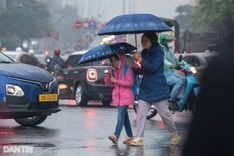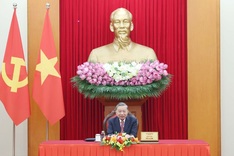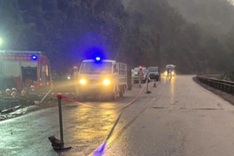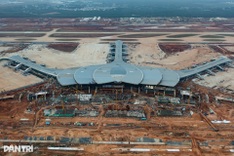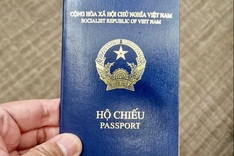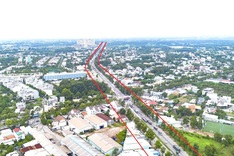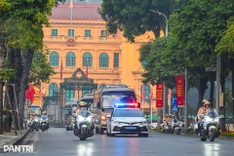A suicide bomber wearing police uniform set off one of two blasts that killed 13 people Wednesday in Russia's volatile Dagestan region just two days after attacks on Moscow's metro left 39 dead.
 |
| People stand near a burnt out automobile, the result of a suicide bomb attack in Kizlyar on March 31, 2010. |
The first blast destroyed a police car at about 8:40 a.m. in the city of Kizlyar, killing the three officers inside, the regional Interior Ministry said on its Web site today.
About 30 minutes later, when investigators were working at the scene, the suicide bomber walked up to them and detonated his explosives belt, killing the local police chief, five other law enforcement personnel and four civilians.
The Moscow metro blasts were carried out by two female suicide bombers who blew themselves up within 40 minutes of each other in two busy metro stations in the heart of the Russian capital.
The authorities have linked the Moscow metro attacks to militant groups in the North Caucasus, where the pro-Kremlin local authorities have for years been fighting an Islamist insurgency.
Muslim Dagestan has been one of the Caucasus regions most troubled by militant violence, along with Chechnya and Ingushetia.
The new attacks came as Russia was set to start burying the first of the 39 victims from Monday's metro attacks.
Dmitry Korobtsov, a spokesman for Moscow-based funeral service Ritual, said two victims of the metro blasts were to be buried Wednesday and more people will be laid to rest in the days ahead.
One person will be buried in the Moscow region town of Chekhov and the other in the neighbouring city of Kaluga, Korobtsov said.
"Another body bag will be sent to Sevastopol," he said, referring to the city on Ukraine's Black Sea coast.
Around 10 more people were set to be buried in Moscow on Thursday, Korobtsov added.
A total of 78 people remain hospitalised, a spokeswoman for the emergency situations ministry told AFP.
Russia's Prime Minister Vladimir Putin had Tuesday ordered security forces to snare the masterminds of the metro bombings, saying they should be scraped out from the sewers.
"It is now a matter of honour for the security forces to scrape them out from the bottom of the sewers and bring them out into the light of day," he said.
Putin's language was strikingly reminiscent of his famous promise in 1999 to strike at rebels even in the "outhouse" which heralded the adoption of tougher tactics by the authorities against Chechen militants.
Police were searching for two women seen with the metro bombers as well as a possible male accomplice, after identifying them and the bombers through surveillance footage, Russian media reported, citing security sources.
Russian police have released grainy but grisly photographs to local media showing the severed heads of the two bombers' corpses.
The Kommersant daily said the investigation was looking closely at the possibility the two bombers had arrived from the Caucasus early Monday morning at a bus station at Luzhniki market in southwestern Moscow.
It said the drivers of some 300 buses at the bus station had been apprehended by the police and their documents confiscated pending enquiries.

